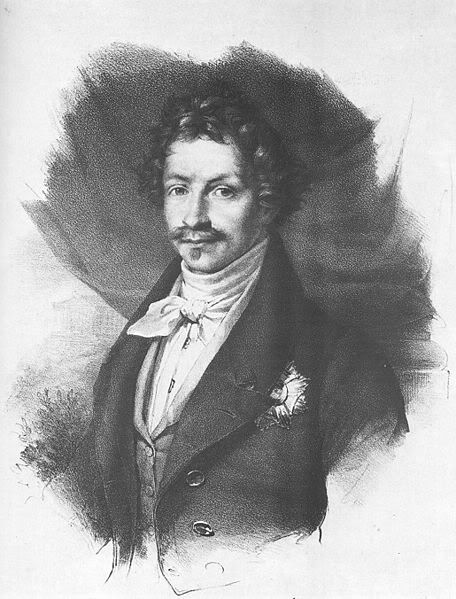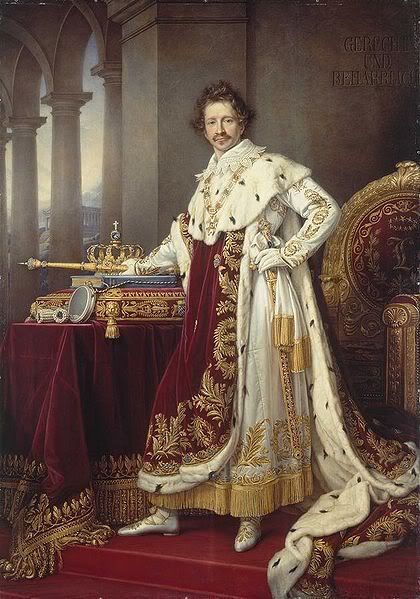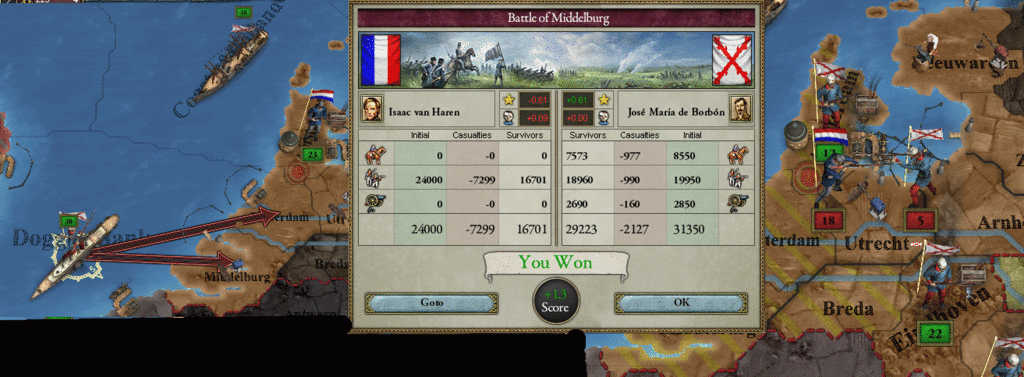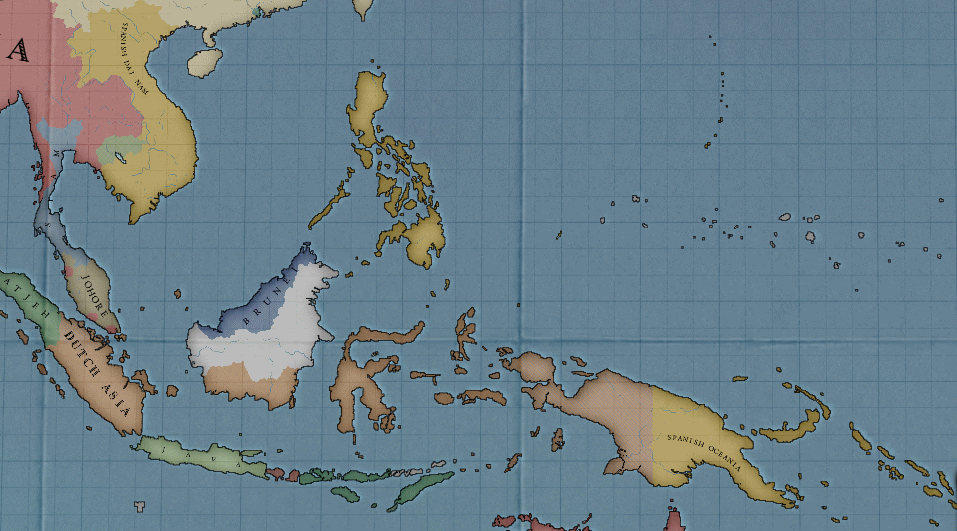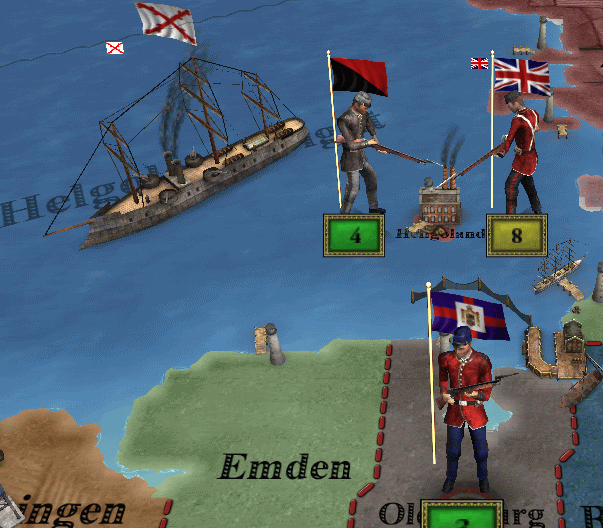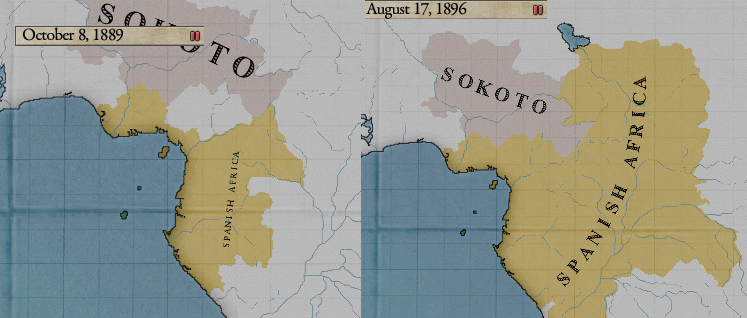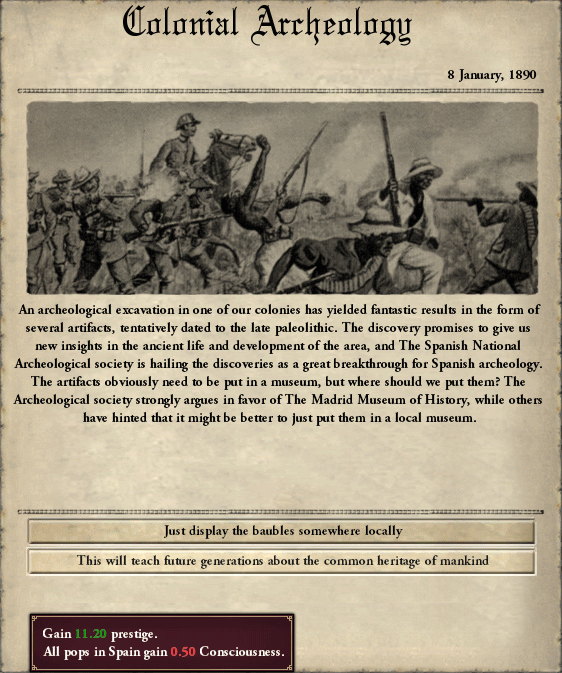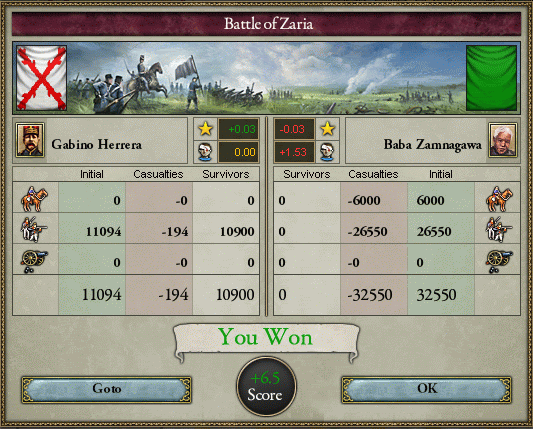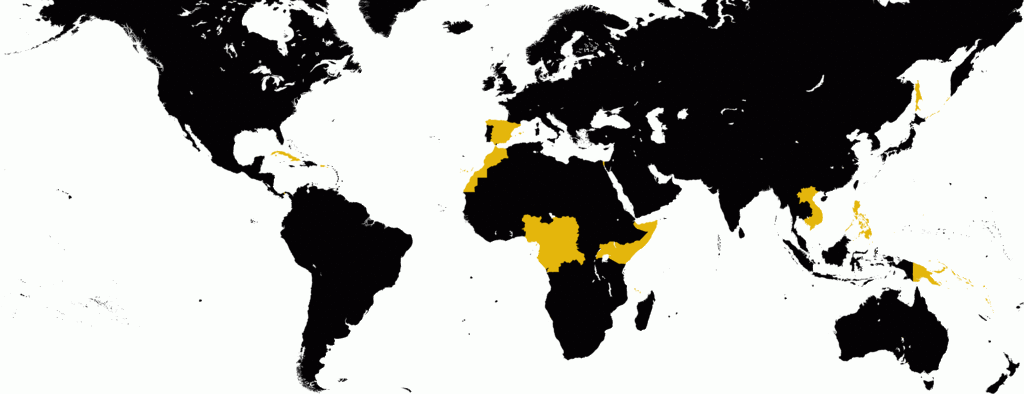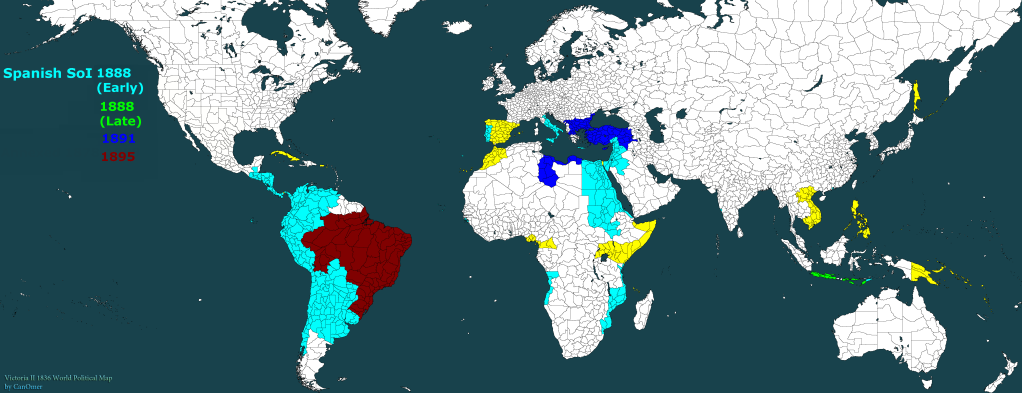The Rise of Oldenburg – The Tale of Ludwig of Holstein-Gottorp
The rise of Oldenburg to the lofty ranks of the Great Powers was a phenomenon almost entirely fuelled by one of the greatest men of the 19th century, perhaps ever. Ludwig of Holstein-Gottorp.
Ludwig was born in 1830 as the second son of Grand Duke Augustus who had risen to control of Oldenburg the previous year. As the second son Ludwig’s education was more focussed on the arts and was not nearly as demanded as his elder brother yet from an early age it was clear that Ludwig was an exceptional individual. In 1841 Ludwig’s brother died and he became heir to the Duchy. From then on the Prince’s life started to develop fast.
In 1842, at the humble age of 12, he lost his virginity to his nanny by his early teens he had become an infamous scourge of the young daughters of the German nobility. At the same time he wrote extensively on philosophy, science and history. When he was 16 years old he married a fabulously wealthy heiress named Cecilia, impregnated her and then proceeded to sail away from Oldenburg with much of her and his father’s money without informing either.
Ludwig was desperate to get as far away from Oldenburg as possible and in late 1846 he arrived in British ruled Calcutta. Ludwig kept a stirringly detailed diary of his journeys in the East and according to him on his first day in India he used his position to gain an audience with the Governor of Calcutta but quickly growing bored of the dreary man he ‘’swept upon his daughter’’. The following day he left the city for pastures new.
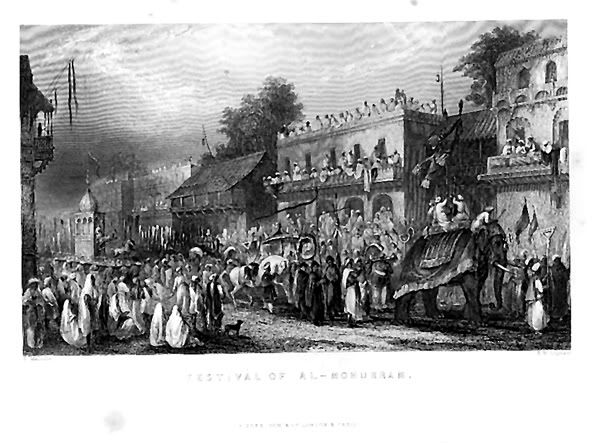
He crossed India by train, foot, elephant and horse and in March 1847 arrived in Bombay. Here he lingered for well over a year and was unleashed to a whole new world of sensual delights. It was thinly concealed in his writings that the Prince did not lie exclusively with the women and girls of Bombay’s bathhouses. However even with every one of his desires of the flesh being fulfilled to the upmost Ludwig clearly desired something much greater and in 1848 he travelled North to the Sikh Empire of the Panjab. At the time the Maharaja Sher Singh’s Empire was being overrun by an invading army of Afghan tribesmen whilst he himself had neither the ability nor the desire to lead his men to victory. When the well spoken Ludwig arrived he somehow convinced the Maharaja that he was not only British (Singh was always eager to improve relations with India’s hegemon) but also a proven military commander (despite being just 18 and looking little older). The only clues Ludwig’s diary provides to why the Maharaja believed him are unashamedly boastful ‘’the Prince did leave his exulted host in awe’’.
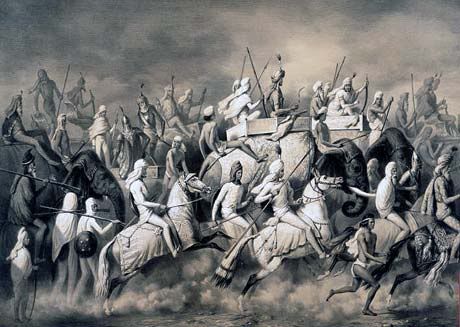
Luckily for Ludwig it turned out he was infact an even more capable military commander than he had claimed and between 1848 and 1852 he crushed the Afghan invasion of the Panjab, forced his way into Afghanistan taking the Khyber Pass and eventually putting a pro-Panjabi King on the Afghan throne. The Maharaja invited Ludwig to stay in Lahore but instead the Prince accepted a significant payment and left for the South.
In the Summer of 1852 the Prince arrived in the mighty state of Hyderabad in central India which was at the time inflamed in civil war. One claimant to the position of Nizam was Asah Jah (a powerful man in his 40s who Ludwig had first met in Bombay). Ludwig and Jah clearly had a close relationship and the young Prince quickly worked his way into the would be Nizam’s personal circle (and allegedly his bedchamber). In 1853 Ludwig started to command some of Jah’s armies and in 1855 he led Jah’s armies to a crushing victory over the rival Nizam. By 1856 the war was over – Asah Jah now ruled over one of the most valuable dominions on earth. As a reward the Prince was granted a stake in several large diamond mines.
Now 26 and fabulously wealthy Ludwig decided to return to Europe – by land. Crossing, lackadaisically, through India, Persia and the Ottoman Empire, leaving a trail of bastards in his wake, he arrived in Constantinople on Christmas Day 1857. There he was invited to a grand party for the leaving French ambassador. Ludwig, always one for a good party, got blindingly drunk and was chased out of Constantinople by armed police after making an uncouth pass at the daughter of the British ambassador before throwing a drink at the Crowned Prince of the Ottoman Empire.
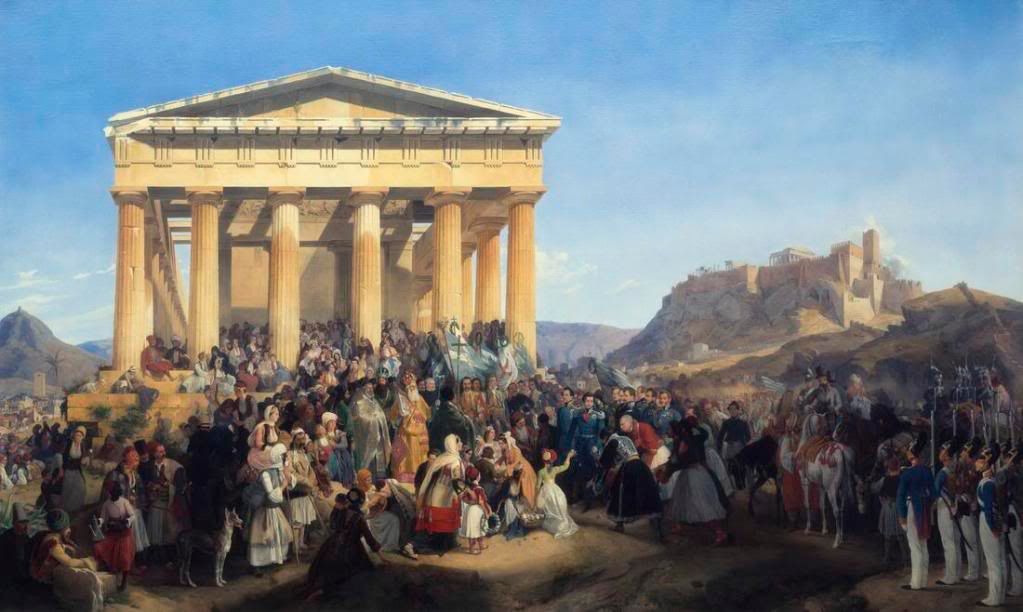
Any enemy of the Turk is a friend of the Greek and in January 1858 an excited Ludwig arrived in Athens – a city he had admired since his earliest days. However the Athens the Prince observed was not the glorious classical city he had read of but a dilapidated town with nothing but pride in its past and grand monuments that were being picked apart by overly eager Western European tourists. Ludwig stayed in Athens for some time where he championed a fight for the city’s revival. Ludwig wrote what would later become the Greek national anthem, opened the Prince Ludwig School of Classics (the largest University in the Balkans to this day) and convinced the Greek government to end the practise of Western tourists taking pieces of Greek monuments home with them. In 1860 Ludwig finally moved on to Paris.

Paris had for centuries been the centre of philosophical thought and artistic practise. IN 1860 the city was still buzzing with intellectual achievement and it did not take long for Ludwig to immerse himself in the Parisian intelligentsia. It was here in Paris where the Prince stayed until 1863 when his father finally died. Ludwig rushed to Oldenburg, after 17 years on the road during which he had seen some of the greatest sights of the world the Prince returned to his birth right – a ‘Grand’ Duchy of 12,000 souls.
This was all to change. Ludwig did not have himself crowned Grand Duke but King of Oldenburg. Using the great wealth he had accumulated he founded the King Ludwig of Oldenburg School of Art, the King Ludwig of Oldenburg School of Philosophy and decided to begin the recruitment of an Oldenburger Army.
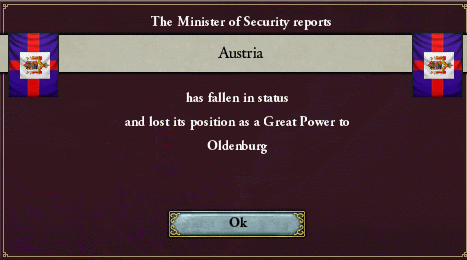
The results of Ludwig’s grand plans for Oldenburg were swift. In 1866, just three years into the new King’s reign, Oldenburg ascended to the ranks of the Great Powers. Not only were artists and great thinkers presented with state of the art facilities and subsidies from the King they also had the chance to meet and converse with Europe’s greatest celebrity. Ludwig, who had met and befriended many of the world’s leading artists and philosophers in Paris, frequently came down to both of his schools and talk with the great men who had come to his city. At the same time Ludwig’s palace became the greatest pilgrimage site for Europe’s lady aristocrats as the libertarian king kept an open minded view to marital relations (he never again slept with his wife after the first time when he was just 16).
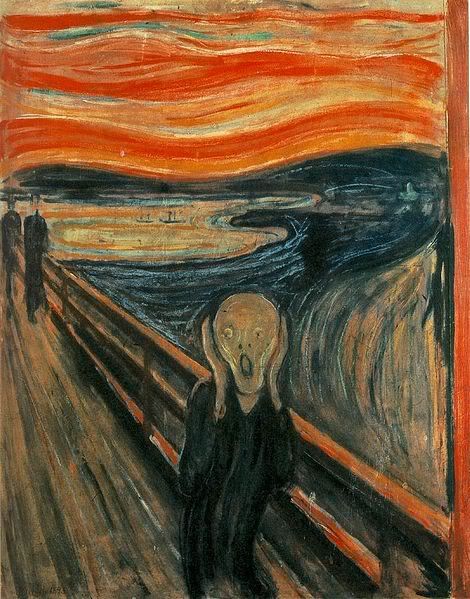
Perhaps the most famous piece of art to be produced by the Oldenburg masters was The Scream by Edvard Munch which ushered in the cultural movement known as Expressionism which was centred on the King Ludwig of Oldenburg School of Art. Ludwig himself contributed some of the finest poetry and paintings of this movement during the 1870s.
The most well known tenant of the King Ludwig of Oldenburg School of Philosophy was, without doubt, Karl Marx. Between 1876 and 1879 the father of Communism stayed in Oldenburg at a time when the Prussian government threatened to invade any German state that offered him asylum. However Marx left Oldenburg after getting into a personal argument with Ludwig over ideology (it is not hard to discover major points of divergence between Marx and the opulent King).
Whilst Ludwig pioneered the recruitment of a 3,000 man army of Germans from other, more oppressive, states (the Kingdom’s population was far too small to support an army of natives) he also constructed a mighty line of fortresses around his capital. By 1880 Oldenburg had gained a reputation as the ‘’Gibraltar of the North’’ there wasn’t an inland fortresses as impenetrable on earth.
Ludwig’s most politically important actions were those he undertook to resist Prussia in the German Confederation. When Prussia reconstructed the German Confederation in 1883 into what was essentially a system of vassals Ludwig was the only member of the Confederation to openly refuse the proposal when it was first put forward by Prussia. His impressive persuasive skills were quickly employed as both Bremen and Frankfurt (the latter being a symbolically important city to all pan-German movements) refused to join the new Confederation when it was formally introduced later that year.
When France invaded Germany in 1885 Ludwig’s anti-Prussian movement took a major hit as a wave of German nationalism swept the Germanic states. However Ludwig managed to preserve support for his cause and in 1886 (mid-way through the war with France) Saxony dropped out of the Confederation. Coincidently around the same time Ludwig began his longest lasting and most famous affair when he bedded Queen Caroline of Bavaria (much to the chagrin of her husband).
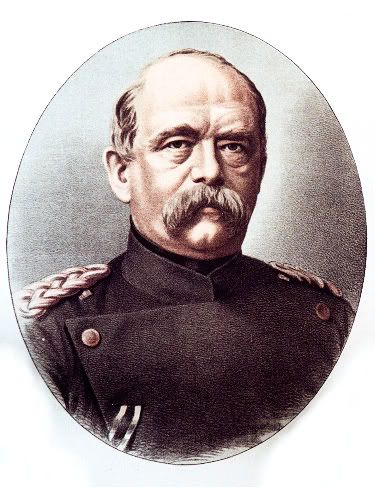
The Prussian Chancellor Bismarck saw this as his great opportunity to deliver a crushing blow to the disruptive Oldenburgian threat. Prussia declared war on Oldenburg in 1886, in the midst of the war with France, and planned to invade via Hanover. However this act of aggression was not well received by the King of Hanover, another man bewitched by the enigmatic King of Oldenburg, Hanover exited the German Confederation (although it did not make peace with France) and refused Prussia access through its territory to Oldenburg. Bismarck was furious and deeply embarrassed – he ordered the small Prussian fleet to attack Oldenburg’s coastline. However in this too he was defeated when the British came out to threaten intervention if the Prussian fleet entered the Heligolian Bight. The British promised to use their garrison on Heligoland to sink the entire Prussian fleet if Oldenburg was threatened by sea.
The war with Prussia actually continued on until 1889, well after peace had been signed with France. Over this period the Prussian position amongst the German states started to become rather insecure as Ludwig rallied the Princes to his cause. In the end Prussia was humiliatingly forced to agree to a white peace with little Oldenburg – Bismarck did not survive this failure and was quickly forced out of office.
In 1890 the mighty King Ludwig of Oldenburg passed away, allegedly of a heart attack whilst in bed with Queen Caroline of Bavaria. To his only son, Augustus, he left a tiny Kingdom with great power across Germany and cultural influence across the world. However, unlike his father, Augustus was not a great man. A mediocre orator, an uninspired intellectual, a man uninterested in philosophy or art and without the voracious sexual appetite of his father. With a new King in power the question was could Oldenburg survive without the man who made it great?



